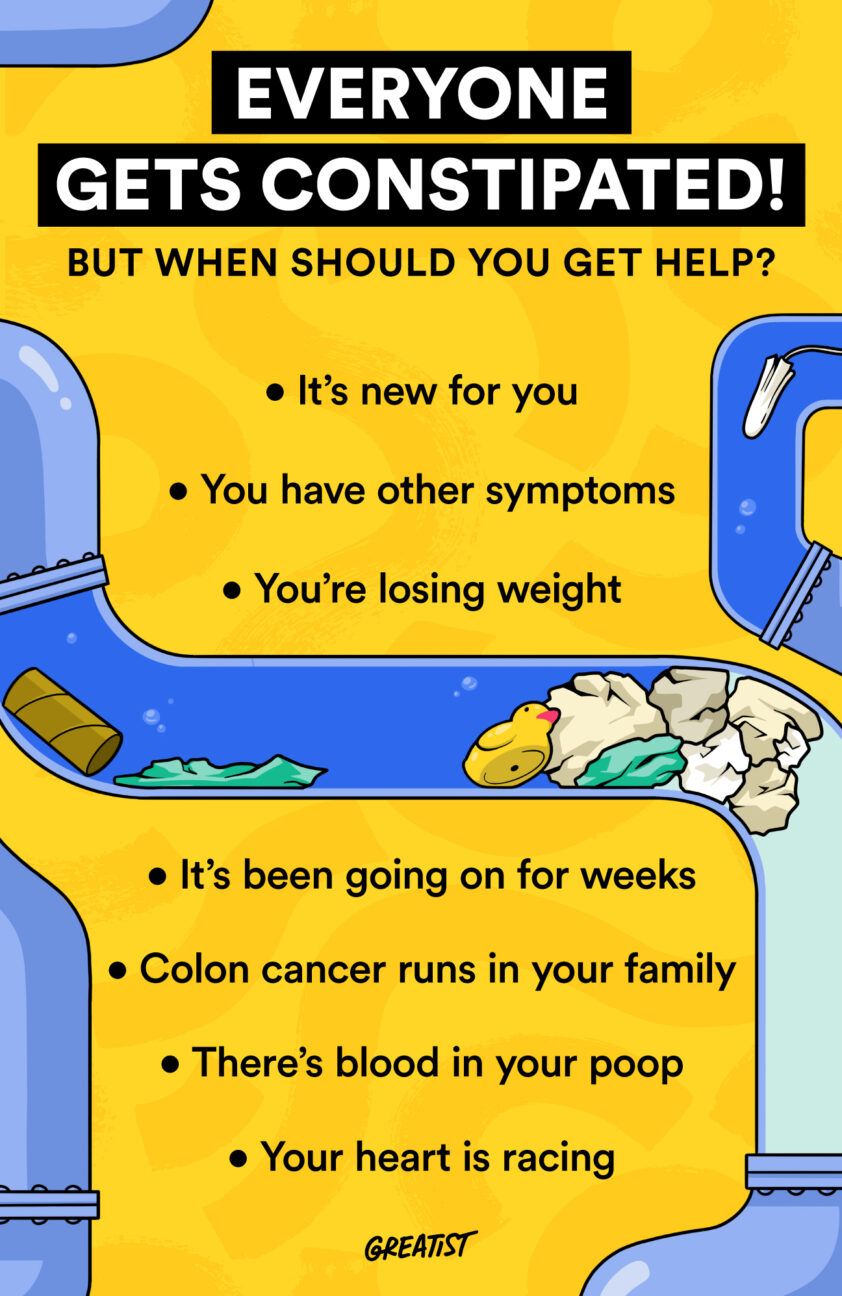Occasional constipation is typically not something to worry about. But if constipation lasts for weeks or you experience nausea, unexplained weight loss, or blood in your poop, it may be time to speak with a doctor.
We get it: Pooping isn’t the most fun topic of conversation. But not doing it often enough could signal a problem that needs to be checked out.
Constipation is much more common than you might think. Close to 1 in 5 adults poop fewer than three times a week. And by age 60, 1 in 3 of us will have trouble going number 2.
Beyond being super uncomfortable, constipation can lead to problems if you let it go. Hemorrhoids, bleeding, and tears in the skin around the anus (called fissures) are all complications of untreated constipation. So, while it’s normal to be backed up once in a while, here are seven situations where you definitely want to check in with a doctor.

Some people go to the bathroom more often than others. But if you’ve been regular all your life and you’re suddenly backed up, that’s a problem worth running by your primary care doctor.
By itself, constipation may be nothing more than a sign that your diet or other lifestyle habits may need some tweaking. But if it’s combined with symptoms such as nausea, vomiting, belly pain, and bloating, it could signal a whole range of problems, from irritable bowel syndrome (IBS) to a bowel blockage. Call a doctor right away or seek immediate medical help if you experience these symptoms along with constipation.
If you’ve been wanting to trim down, it may not be a surprise to see the numbers on the scale drop. But losing weight without actively trying could be a warning sign of a serious disease such as diabetes or cancer. Don’t panic, but do have this symptom checked out.
The occasional bout of constipation is normal. But if you’ve spent 3 weeks or longer trying to move things along and nothing in your fridge or medicine cabinet is working, it’s time to call in help. You might have a chronic issue such as IBS.
People with constipation are at slightly higher risk for colon cancer and other cancers of the gastrointestinal tract. Though the odds that your backup is as serious as cancer are slim, having a family history could bump up your risk.
The sight of red in your toilet bowl can be scary. Coupled with constipation, a small amount of blood could mean you’ve developed hemorrhoids or tiny tears in your bum from passing hard stools. Larger amounts of blood — especially if it’s maroon, black, or tarry — may signal a more serious problem.
Your gut may seem like it’s a long way from your heart, but there is a link between heart disease and constipation. Straining to poop can trigger an irregular heart rhythm. It can also cause your blood pressure to rise, which can increase your risk of other heart problems.
You may want to visit a doctor or cardiologist for a checkup if you’re constipated and notice that you have an irregular heartbeat or other heart issues.
